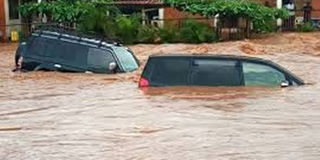We need tough measures on wetland encroachers

A study by the Ministry of Water and Environment titled: ‘The Wetland Atlas for Kampala, Wakiso and Mukono,’ listed 30 wetlands that are facing extinction if activities by encroachers are not stopped.
The study, which was published in 2016, points to how doomed we are if nothing significant is done to stop the abuse of wetlands.
Of the wetlands mentioned, notable ones included Nakivubo, Lutembe, Ramsar site, Kasa Mabamba, Kinawataka, Lufuka, Kaliddubi, Namasoloza, Namayuba, Mbalala, Njogezi and Nalukolongo. These are only but a few of the numerous wetlands this country is endowed with.
Even if they are in different regions of the country, they suffer pretty much the same fate by those too greedy to appreciate their importance in the ecosystem.
Encroachers have turned them into settlements and industries, many are used for brick making, car washing bays, horticulture and real estate, roads to mention but a few.
Those told to vacate play dumb and find ways to legitimise their use of these lands while, it seems as if there are those who are untouchable.
Many of the rain floods that plague our country are only but are result of abuse of wetlands which would have helped to filter, retain and control floods. Instead, we look on as huge industries and other small businesses crop up in these areas and then the owners have the audacity to challenge any attempts of eviction.
In a February 24 story titled, “Encroachers reject one-month ultimatum to vacate wetlands,” Daily Monitor revealed that some wetland encroachers in Kiboga District, especially those engaging in agricultural activities said the grace period of one month should be extended to June to enable them plant and harvest their plants.
The washing bays, schools, maize mills, poultry farms and welding workshop owners also claimed that they had not identified any other places to relocate their businesses and would, therefore, not move within the stipulated time.
Many cited unfair eviction, saying those with big businesses such as mega factories were being favoured.
According to the story, records from the Kiboga natural resources department indicate that 60 per cent of wetlands in the area have been degraded through human activities.
It is worth noting that the authorities are working to restore our wetlands, and this is well appreciated.
However, as is with most issues in this country, more has to be done and quickly. How do these structures and their owners end up settling on these wetlands in the first place, and claim them as their own? It is absurd that some among us keep sanctioning such settlements probably because they don’t fully understand the importance of preserving wetlands or just don’t care. No one should get away with encroaching on wetlands.




